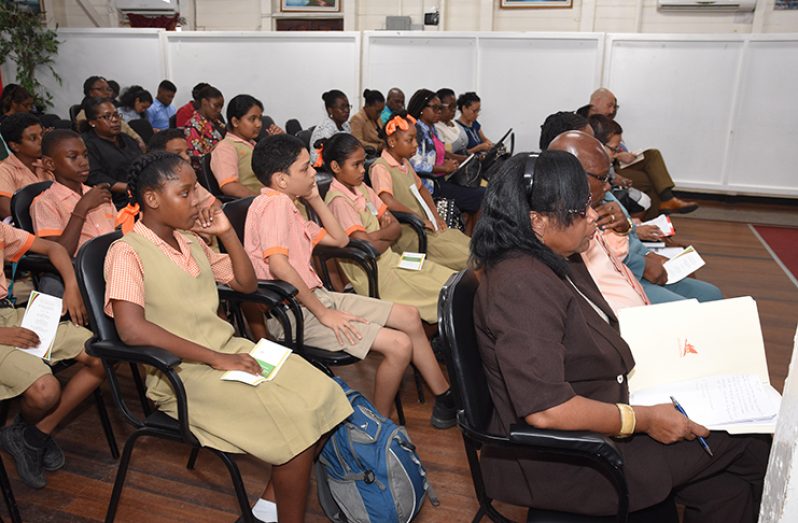THE new policy on reintegrating teenage mothers into school caters for the provision of financial assistance to those adolescent mothers who may not be able to meet tuition fees.
According to the policy document seen by this newspaper, welfare officers will investigate living conditions of teenage mothers and recommend financial assistance to complete school if needed.
The national policy was launched on Monday by the Ministry of Education in collaboration with UNICEF. Its main objectives are: to create a school-based system for referral and tracking pregnant school girls, to develop and implement a system for the reintegration of adolescent mothers, to develop a system of tracking and supporting adolescent mothers after reintegration, to provide practicable educational options for adolescent mothers who wish to opt out of school, to increase public awareness of the right of adolescent mothers to an education, to ensure the provision of support for the health and well-being of the new-born infant and most importantly, to increase the education of students on sexual reproductive health and life-skills education in an endeavor to prevent adolescent pregnancy.
The policy took almost a year to formulate and authorities are optimistic and upbeat that it will make an effective impact on the lives of young girls. In addition to the option of financial support, under the new policy teen mothers will be given five options:
(1) to be readmitted to the same school attended prior to becoming pregnant but would have to repeat the grade they were last in;
(2) transfer to an alternate school with the support of the Schools Welfare Unit and the relevant department within the Ministry of Education;
(3) enroll in a Technical and Vocational Education and Training (TVET) programme;
(4) attend any private secondary school, college or business institute that can be accessed by adolescent mothers and
(5) enroll in an apprenticeship or traineeship scheme which provides a combination programme involving part-time school/training/or part-time work, scholarships and other initiatives.
According to the policy, with any of the options chosen, the Ministry of Education will appoint support persons that will ensure: the environment is supportive and free of victimization and stigmatization; teen gets support from school staff and Principal; pre-natal and post-natal child care services are provided and counseling and psycho-social support is readily available.
It was also stated that the policy caters for teen dads as well. They will be provided with the same support system as the mothers and will be encouraged to complete school and be a responsible father. To aid in the alleviation of teen pregnancy, the policy necessitates the strengthening of the Health and Family Life Education (HFLE) in schools. Schools shall create an environment suitable for age appropriate comprehensive sexual education and life-skills education that will increase the ability of students to practice responsible decision making with regard to social and sexual behaviour.
The state has also committed to make adequate provisions in the budget for the effective implementation of all aspects of the policy along with the help of the multi-sectorial collaborations. The policy will be reviewed every four years and recommendations and improvements will be made to make its execution more effective and produce better results.
Speaking at the launch held at the National Centre for Education Resource Development (NCERD) in Kingston, First Lady, Mrs. Granger, expressed concerns about teen mothers and the way they are treated in society. She highlighted a few unfortunate scenarios of how girls as young as 10 and 11 years old, get pregnant.
“These are things we have to face as a nation and we have to be frank about it. We have to ensure their rights are recognised and upheld and that our legal and social protection agencies protect these children and allow a bright future for them.” Mrs. Granger said.
“We have to speak of these things and see it as violence against our children. We also have to… ensure that their rights are recognised and upheld; that our legal and our social protection agencies protect these children with the full majesty of the law… the children come first and it is their future that we have to ensure… That is enshrined in our Constitution,” she said.



.jpg)








